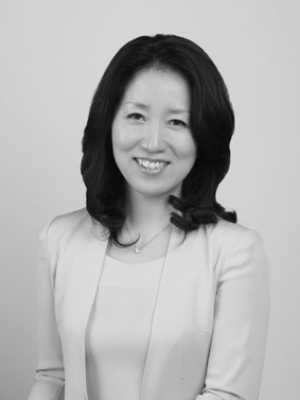
Ever since the Sewol tragedy, national mourning has continued. Leading intellectuals, ordinary citizens, and even candidates for the local election, have all promised that they would never forget the disaster. Most adults are promising not to repeat such a tragedy again. Lightening up candles and putting on yellow ribbon on clothing, we are practicing a series of mourning walks.
I myself, a mother of an active middle school boy and of countless ‘daughters’ of Ewha, also have gone through hard times, experiencing various stages of emotions, first from shock followed by sadness and anger. When I was informed of the fact that the tragedy happened because of monetary greed of ship owners and irresponsible actions of the involved ‘bureaucrats’, I could not keep my temper. What shall I do? What would be the best way to remember lives and deaths of the beautiful youth and the event’s immorality which should not be repeated again?
While I was struggling with this question, I came to think about the Hebrew’s ‘Passover’, the annual remembrance ritual to celebrate the historical event that acquired liberation from slavery life in Egyptian empire. Biblical scholars assume that the event happened in 1220 B.C.E. Exodus, the second book of the Hebrew Bible, tells that the Israelites have celebrated the day of salvation by repeating the practices of eating unleavened bread, probably the last activity they practiced before leaving.
The Bible writes: “Celebrate the Feast of Unleavened Bread, because it was on this very day that I brought your divisions out of Egypt. Celebrate this day as a lasting ordinance for the generations to come.”(Exodus 12: 17) The Bible even delivers a furious warning that “whoever eats anything with yeast in it must be cut off from the community of Israel.”(12: 19)
By this biblical verse, I don’t think that God is an authoritarian deity who will excommunicate people who are not obedient to HER. In my interpretation, the unleavened bread stands for tensed moment of escaping from Egypt. By eating this unleavened bread, the Israel community keeps reminding the memories of the salvific day. I believe that this recurring ritual has functioned for the diaspora Jews to maintain their national identities despite the long wandering without the homeland. I am not supporting their current exclusive Zionism. However, I have to say that their ritual of Passover shows the power of remembrance.
Of course, in our case, the Sewol event is not a pleasant but a painful memory. But still I think we should formate a sort of remembering ‘ritual’, not in a religious form but in a societal form. It is surely our duty to bring the lesion of the disaster into our contemporaries, even ten and one hundred years later. Wednesday demonstration in front of Japanese Embassy led by the Korea Council for the Women Drafted for Military Sexual Slavery by Japan is another example for societal remembrance ritual. I do not know what kind of symbolic ‘ritual’ would be most appropriate for us to remember this Sewol disaster. But, we have to come up with a symbolic action through which the lesson can be remembered as our society continues.
I have invited my previous and current students of Ewha to voluntary discussions and participations for this task, hoping that such an important societal task starts from our Ewha community, the community of loving, sharing, and dreaming.
*Professor Baik So-young earned her Ph.D in theology from Boston University in the U.S and received her B.A. and M.A. in Christian Studies from Ewha.

